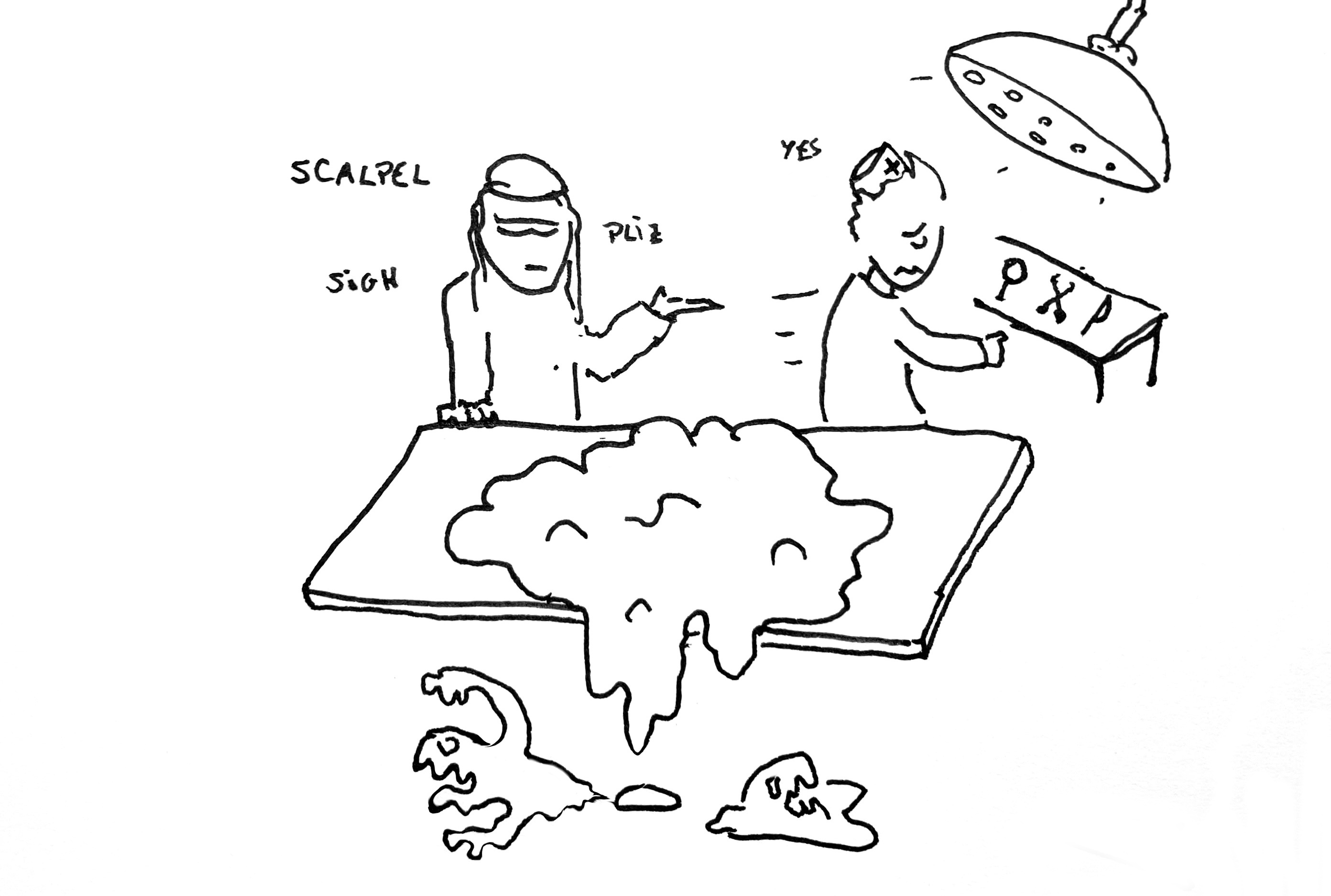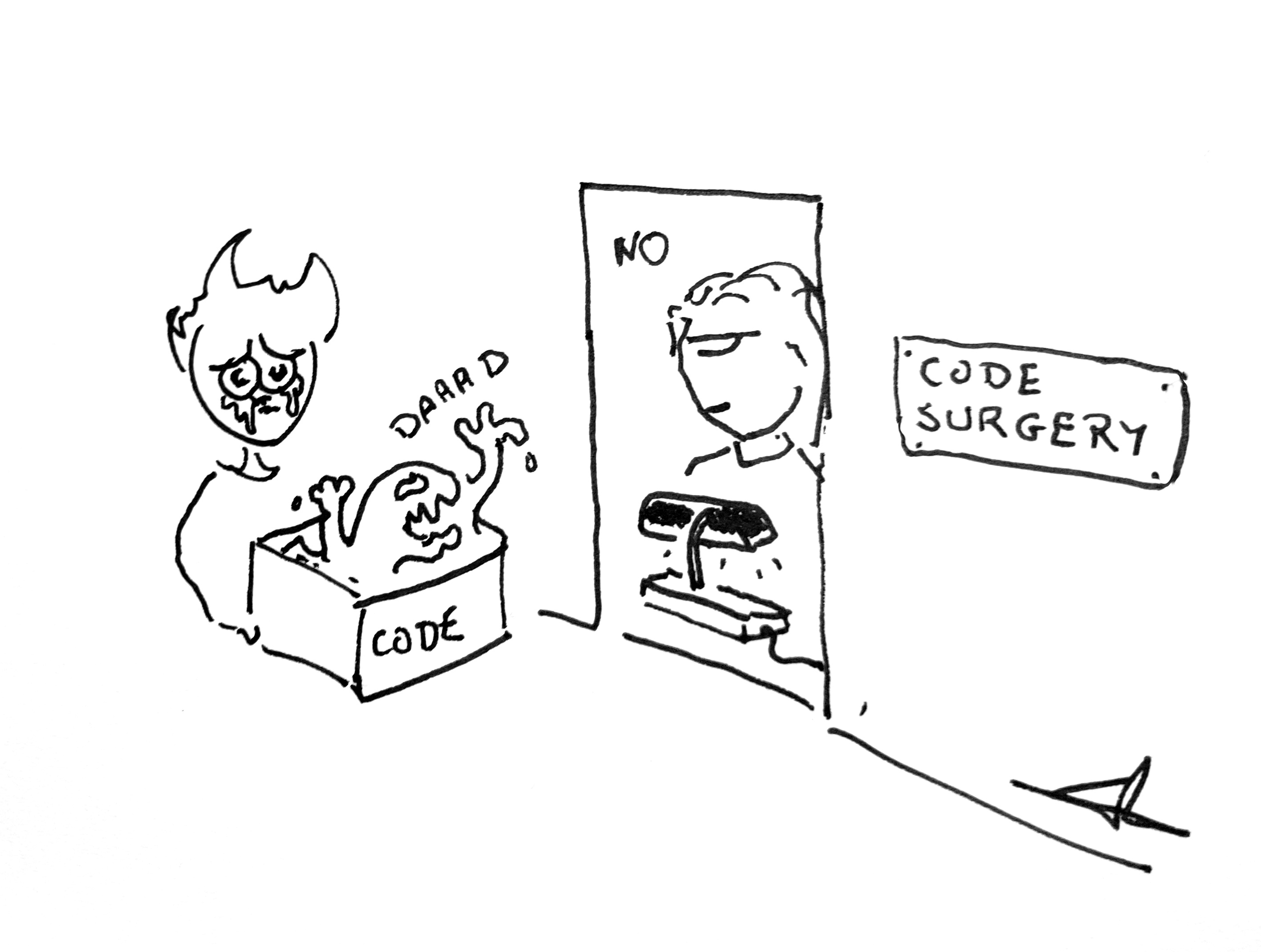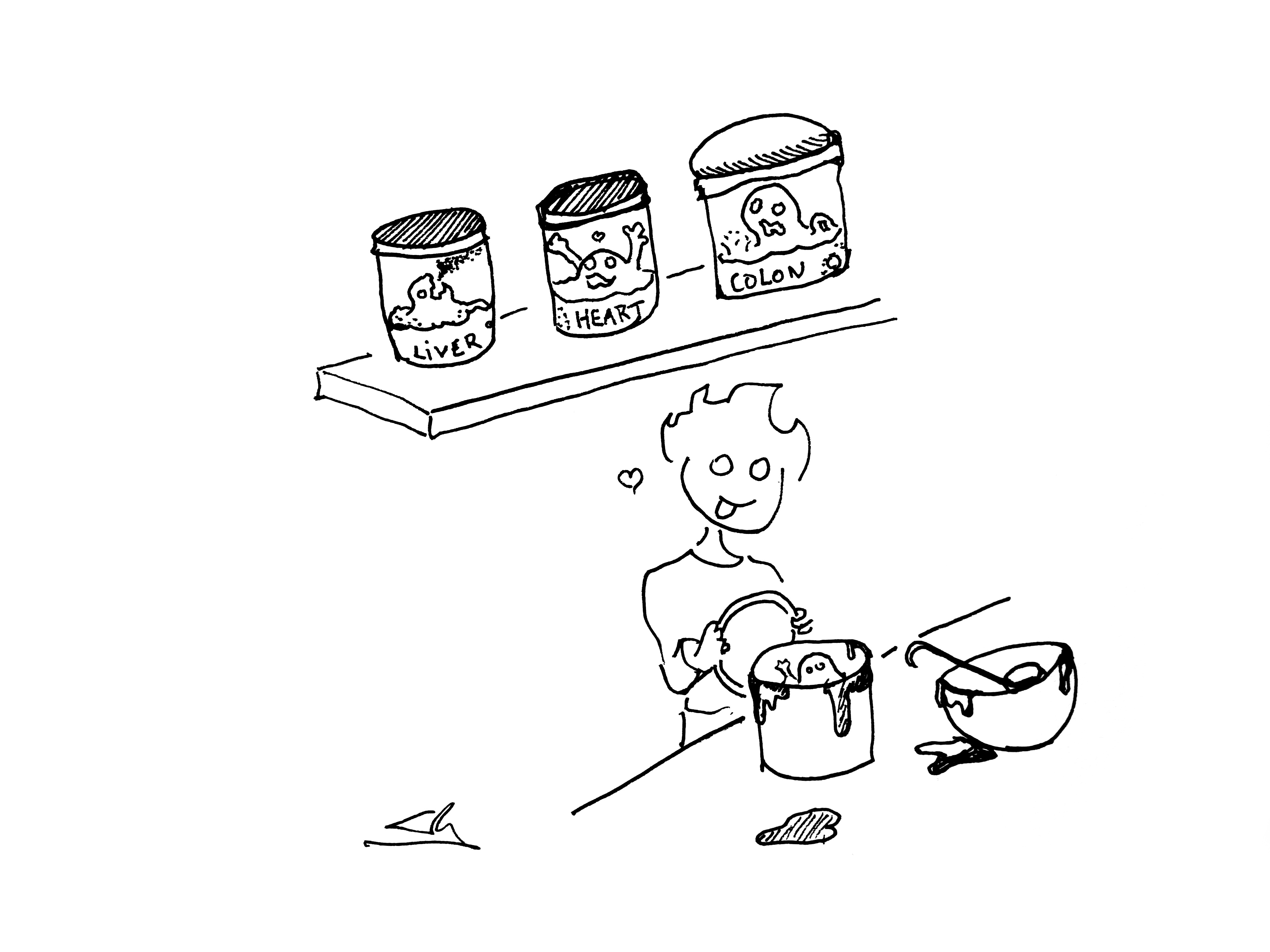
Make code surgery easy with the SRP
The Single Responsibility Principle (the S of the 5 5 S.O.L.I.D. principles) states that each class should do just one thing, but do it well. Why so? Well, think about the way our body organs work together: do we digest stuff at the exact same place we process cognition? Of course not! We evolved differentiated organs that are specialized for a very small subset of related functions. For example, the main responsibility of eyes is to perceive light. The liver has been blessed with the detoxification responsibility. Remark how clear structure of human body organs makes surgeries surprisingly easy - or at least doable. Surgeons can remove a diseased liver and replace it with a healthy liver in 6 hours! Can you replace that old, slow and buggy code of yours with a healthier version in the same amount of time?

Objects in our code should ideally work in the same way organs do in a healthy body. Big organs with clearly separated functions, all in constant interaction. They produce, exchange, communicate, sometimes fail, but their structure is still striking and robust.
Of course, it happens often that to perform one task very well one has to do a lot
behind the curtain: take for example the amygdala, this structure near the base of your brain.
To do fast decision-making right,
it needs to process both memories and emotional responses so it can associate adverse
experiences with negative feelings. Next time you encounter a situation that the amygdala
considers as vaguely similar to a bad memory (let’s say encounter with a tiger) it will fire
the right decision in no time (that is, running of course getting closer to properly document
their stripe pattern: you’re a biologist after all).
Complexity is structured complications.

If you want to see programmatic organs emerge from the primordial soup of your code, try to follow these steps:
-
Think bigger! Think smaller! Think at the right level!
Identify the responsibility of the piece of code you’re working with: what is it supposed to do conceptually?
For example: I want my class to read a tiger strip from a picture and match it to the tiger ID.
Don’t think about lists, pointers or arrays. These are often implementation details that should be hidden behind a neat class interface. Find the right level of abstraction you’re working with by naming a tiger strip a
tiger_stripin your code, not aboost::matrix<double>! -
Code surgery is easier when you operate on clearly delimited programmatic organs.
Establish a clear separation between what is the responsibility of one class and another.
Sometimes things are more easily said than done. When you look into the details, maybe you will discover that matching a strip to a number actually involves some pretty badass pattern recognition stuff that should become the responsibility of another class!
-
A big bad code is better than no code at all.
Begin somewhere.
Even if you feel bad, or even if you don’t know yet what your class is supposed to do. As long as you are intentional with the S.R.P., it’s fine! Even if you feel bad writing that awful blob of code at least you know when, where and why you violated the S.R.P, what are the possible consequences and what would be the solutions.
But as you progress, don’t hesitate to export responsibilities when your class becomes too big: a class that does too many things at the same time is impossible to test or debug.
-
Find the balance between the mammoth and the atom.
You will overuse the S.R.P it. Don’t. But you will. That’s how you learn!
When you will have exported aaaaall responsibilities of this big mammoth class to hundreds of smaller and smaller other classes, you will be left with a scrawny class which only responsibility is to represent … a boolean. That’s useless, one class already does that perfectly: the boolean class. But at least you will be able to recognize the early stages of misusing the Single Responsibility Principle!
And that’s fine - and fun! Léonin is still figuring this out!
